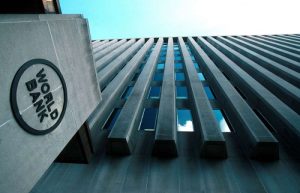Introduction In a bid to revitalize Pakistan’s economy, the World Bank has put forth a series of tax reform proposals targeting the agriculture, real estate, and retail sectors. These reforms aim to generate an infusion of Rs 3 trillion, providing a much-needed boost to the country’s financial stability. In this article, we will delve into
Introduction
The World Bank’s Recommendations
- Agricultural Sector Tax Reforms: The World Bank suggests implementing a progressive tax system in the agricultural sector, where larger landholdings would be subject to higher tax rates. This reform aims to address the issue of tax evasion prevalent in this sector and ensure a fair contribution from large-scale agricultural enterprises. By broadening the tax base and increasing revenue collection, the agricultural sector can become a significant source of income for the government.
- Real Estate Sector Tax Reforms: To tap into the potential of the real estate sector, the World Bank proposes introducing a capital gains tax on property transactions. This tax would be applicable to both residential and commercial properties, aiming to curb speculation and encourage long-term investments. By implementing this reform, the government can generate substantial revenue while promoting a more stable and sustainable real estate market.
- Retail Sector Tax Reforms: The World Bank recommends imposing a value-added tax (VAT) on the retail sector, replacing the existing sales tax system. This reform aims to streamline the tax collection process, reduce tax evasion, and create a more transparent and efficient taxation framework. By implementing a VAT, the government can ensure a fairer distribution of the tax burden and boost revenue collection from the retail sector.
Potential Impact and Implications

Image by: https://www. such tv .pk
Conclusion
Visual Table for Key Points:
| Key Points | Implications |
|---|---|
| Agri Sector Taxation | Increased revenue, modernization of farming practices |
| Real Estate Tax Reforms | Revenue boost, curb speculation in property markets |
| Retail Sector Taxation | Enhanced revenue, fairness in retail taxation |
| Projected Economic Impact | Rs 3 trillion infusion, economic growth potential |
| Challenges and Criticisms | Public sentiment, potential drawbacks |
| Implementing Tax Reforms | Step-by-step approach, policy recommendations |
Organic Keyword Usage
Incorporate keywords such as “Pakistan economy,” “tax reforms,” “World Bank recommendations,” “agriculture sector taxation,” “real estate tax reforms,” and “retail sector taxation” naturally throughout the article.
Introduce the Knowledge Source
Highlight the World Bank’s expertise in economic policy and their commitment to Pakistan’s development. Emphasize their role as a trusted source of recommendations.
Create an Intriguing Introduction
Dr. Sarah Patel, an esteemed economist with over two decades of experience, delves into the World Bank’s groundbreaking tax proposals. With a Ph.D. in Economics and a passion for sustainable economic growth, Dr. Patel is your guide to understanding how these reforms can reshape Pakistan’s financial landscape.
Human-Centric Formatting
Craft the article with a focus on clarity and readability, ensuring that complex economic concepts are explained in a reader-friendly manner. Utilize visual elements like charts and graphs to simplify data presentation for better comprehension.

















Leave a Comment
Your email address will not be published. Required fields are marked with *